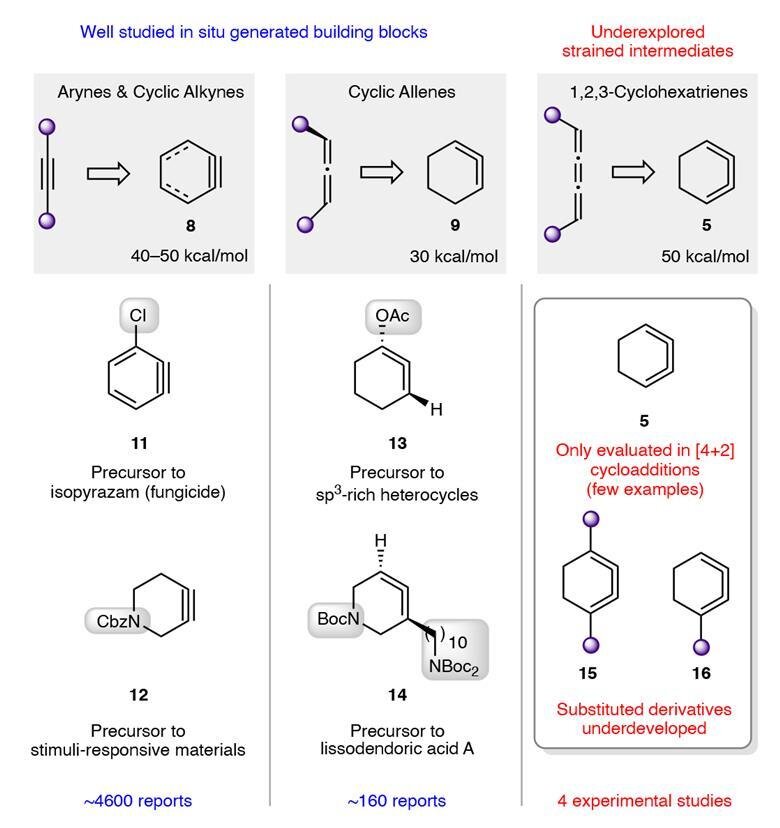Chemists at the University of California, Los Angeles have discovered that 1,2,3-cyclohexatriene, a benzene isomer, has the potential to be a useful reagent in organic synthesis. Although it has been considered too unstable to be of use for many years, it is substantially higher in energy than benzene, making it a promising candidate for synthesizing useful organic materials. Benzene isomers, in general, have been of interest to organic chemists because of their potential for synthesizing useful organic materials.
The chemists conducted experiments with the high-energy compound and found that under the right conditions, 1,2,3-cyclohexatriene could be useful as a reagent for producing a wide range of organic compounds. They produced samples using a method developed in the 1990s to generate intermediates from a precursor. They then used a variety of techniques to produce an array of fused-ring adducts, all of which were likely to react well, like benzenes, to nucleophiles. They then determined whether it could be used as an effective reagent.
To test the possibility of using it as an electrophilic reagent, the team conducted a host of trapping reactions with dimethyl trienes. They also used sily1 group members to show how nucleophilic reactions could be conducted and also conducted reactions showing the potential of σ-bond insertions. The group also conducted computational studies in conjunction with experimental analysis that showed that derivatives of 1,2,3-cyclohexatriene could be used in certain reactions despite the high degree of reactivity and its limited lifetime.
The team also showed that 1,2,3-cyclohexatrienes could be used in synthetic sequences that involve many steps, which, they note, shows their utility in building stereochemically and topologically complex molecules. They conclude that such isomers and their derivatives merit further investigation for use in creating organic materials.
In conclusion, the discovery of the potential for 1,2,3-cyclohexatriene as a versatile reagent in organic synthesis is a promising development. Despite being considered too unstable for many years, the compound’s high energy makes it a candidate for synthesizing useful organic materials. The chemists’ experiments showed that derivatives of 1,2,3-cyclohexatriene could be used in certain reactions despite their high degree of reactivity and limited lifetime. Further investigation is needed to fully understand the potential of this compound and its derivatives for creating organic materials.



Leave a Reply